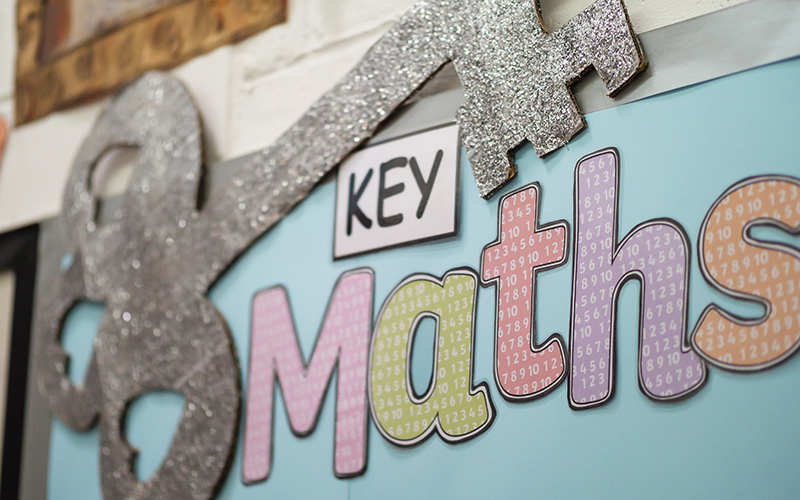Too much emphasis on maths is harming children's wellbeing and willingness to learn
The emphasis placed on maths by England's National Curriculum can be damaging for primary school children’s wellbeing, and obstruct opportunities for them to learn and participate fully at school.

30 October 2023
Context
The National Curriculum was developed in 1988 with an explicit policy aim of delivering a broad and balanced curriculum, to allow all children to enjoy the full range of school subjects.
However at the primary school stage, national assessments have never tested every subject and instead focus on measuring children's progress in 'core' subjects of mathematics, English, and - in the early days - science. Over time this has skewed the amount of time spent on different subjects in favour of these core subjects, with approximately half of curriculum time being devoted to maths and English.
A not-so-well-rounded curriculum
Dramatic reductions have gradually been made to other subjects and in 2014 further cuts were made to creative and fine arts including music despite evidence that these make a powerful contribution to children’s wellbeing, and to environmental and nature studies despite the urgency of climate change. Leisure time and sports have been constantly reduced; and in 60% of primary and secondary schools, children might miss their entire break or lunchtime to help them ‘catch up’ with schoolwork.
This all serves to reduce opportunities for children to develop other areas of strength and interest during the school day, as well as important opportunities to develop social interaction skills.
Maths aversion
Rather than improving competence, the National Curriculum’s increased focus on maths might inadvertently have the counterproductive effect of increasing children’s mathematics anxiety and intolerance. Ofsted requires primary class teachers to officially differentiate between ‘high’, ‘middle’, and ‘low-attainers’ on the basis of English and maths test scores, which disadvantages those who don't perform well in test conditions and systematically depreciates those whose interests and talents lie elsewhere by labeling them as 'low-attaining'.
Findings
Professor Hargreaves' research evidenced distress and devastation among those who were uncomfortable with maths: motivation was negatively affected by boredom and anxiety and the added difficulty of work in the 2014 curriculum and continuing rigid, static forms of teaching that were used to cover heavy curriculum loads.
Recommendations
A socially just curriculum would support the development of every child’s personality, talents, and mental and physical abilities to their fullest potential as a human right. More opportunities must be provided, in school and in research, for all children to express their actual experiences and have their requests acted on. This would help validate all children as high-status individuals; and would also benefit teachers and policymakers who act on the evidence.
Assessment policy
Policy in England still fails to make the link between children’s fear and loathing at school with their declining intention to engage in learning. Children in the study wished for their value to be recognised on the basis of their whole life history, not just on scores in attainment in tests of mathematics/English. The researchers also concluded that:
- Testing needs to be reduced as does physically dividing children up by attainment.
- An improved balance is needed between policy emphasis on mathematics/English and other subjects, for example, arts, sports, and humanities.
- Policy needs to encourage children’s agency over conformity and employ more creative pedagogies than just sitting still, concentrating and listening, which do not suit all children.
- Leisure times at school must be respected to provide relief from classroom pressure.
Classroom practice
- Children’s marks need not be made public; differentiated work can be provided in private rather than public.
- All staff can challenge competitive language and derogatory behaviour among peers, and reward engagement and collaboration rather than attainment or conformity.
- In the study, the children themselves recommended that teachers try not to hurry or threaten children in relation to formal schoolwork.
- Other suggestions included allowing friendship seating in class wherever possible and providing quiet places for children to sit when appropriate.
By Sarah-Jane Gregori.
Image
Credit: Phil Meech.
 Close
Close

